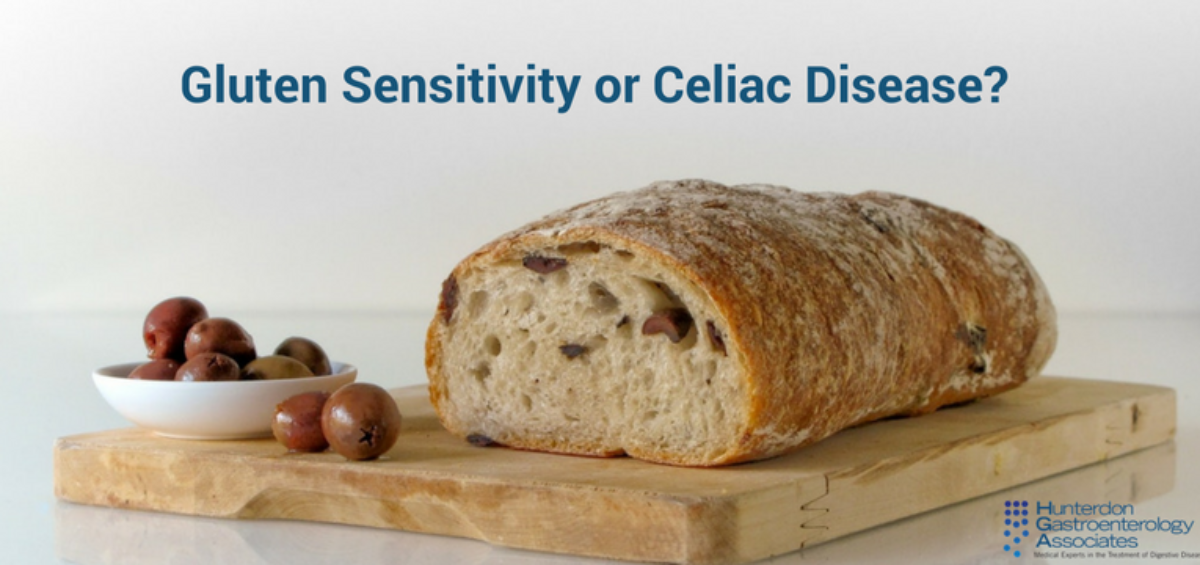Although awareness of gluten has increased over the past several years with the widespread availability of gluten free products, it is critically important not to self diagnose a gluten sensitivity. A complete evaluation by a physician is needed because individuals who feel they may have gluten sensitivity may actually have Celiac Disease, a condition that can lead to serious health issues if gluten is not completely eliminated from the diet.
What is Celiac Disease and what symptoms should I look for?
It is estimated that as few as 20% of people with Celiac Disease are officially diagnosed, resulting in 2.5 million Americans not knowing they have this condition. Patients with Celiac Disease experience an autoimmune reaction after ingesting gluten, a protein found in wheat, rye and barley. Gluten is found in certain foods, as well as some medicines, vitamins and supplements. The autoimmune reaction caused by exposure to gluten damages the small intestine. As a result of the damage, nutrients are unable to be absorbed correctly, possibly resulting in malnutrition and other negative effects on the body.
Celiac Disease is inherited. Individuals with a first degree relative with the disease have a 1 in 10 risk of developing the condition. Individuals with Type 1 diabetes also have an increased risk of Celiac Disease. The later in life Celiac Disease is diagnosed, the more likely it is that a patient will develop another autoimmune disease. Autoimmune diseases associated with Celiac Disease include rheumatoid arthritis, psoriasis, autoimmune forms of liver disease, and autoimmune thyroid disease.
Symptoms of Celiac Disease vary widely from individual to individual. The symptoms also tend to differ by age. Infants and young children commonly have abdominal pain, vomiting, diarrhea, constipation, irritability and fail to gain weight. Teenagers may have diarrhea, constipation, bloating, nausea, and may enter puberty later than peers. Adults may have abdominal pain, nausea, bloating, diarrhea, constipation, headaches, fatigue, or weight loss. Digestive symptoms tend to be less common in adults, while symptoms of being malnourished, including fatigue and trouble concentrating, may be more frequent.
Testing and Treatment
Celiac Disease is diagnosed with a blood test that identifies markers of Celiac Disease. The diagnosis is typically confirmed with an upper endoscopy where inflammation is observed.
Although there is no medication to treat Celiac Disease, it can be well controlled by following a gluten free diet. There are many foods that are gluten free, so it is possible to eat a well balanced diet and get all of the necessary nutrition. Gluten free foods include corn, soy, rice, meats, fruits, vegetables, fish, beans, nuts, and eggs. Once on a gluten free diet, the damage to the small intestine will heal.
Problems arise in individuals that are undiagnosed, and therefore do not follow a completely gluten free diet. Even without symptoms, damage is being done to the intestine.
Although the majority of individuals who feel they have a gluten sensitivity don’t have Celiac Disease, ruling out the disease is an important step in overall care. In addition, it can be important to not assume a gluten sensitivity is causing digestive symptoms since many gastrointestinal diseases have overlapping symptoms. Intolerance or allergies to foods other than gluten, or other diseases or conditions could be culprit. An assessment by a physician will focus on the specific symptoms reported by each patient and the appropriate actions to relieve or lessen symptoms to maintain quality of life and good health.
Our physicians have many years of experience diagnosing and treating digestive diseases. If you have not had a formal evaluation for your gastrointestinal issues, consider scheduling an office visit to meet with one of our nine physicians, all of whom are board certified in gastroenterology.







